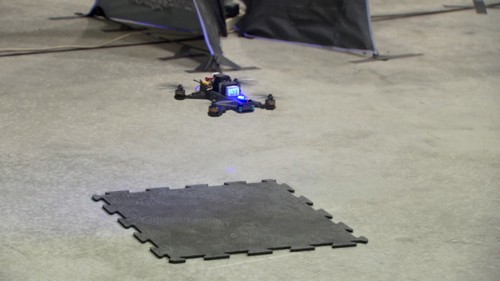Illegal poaching has become such a major crisis that game parks across Africa are increasingly turning to active soldiers, veterans, and military technologies to protect wildlife.
A battle is underway in Africa’s game parks between poachers hunting down wildlife and the rangers protecting them. And the rangers have called in the troops.
In Malawi, British soldiers are teaching rangers how to deal with Kalashnikov-toting poachers in a program supported by Prince Harry. Kenyan rangers are using military-grade equipment to track poachers with the support of the World Wildlife Fund.The organization also tried deploying drones in Namibia, until the government pushed back.
Ryan Tate, the founder of VETPAW (Veterans Empowered to Protect African Wildlife ), a US nonprofit started in 2013, believes military personnel are uniquely equipped to help game rangers deal with the poaching crisis. VETPAW aims to partner US veterans with African game parks to teach rangers military tactics like how to patrol large areas and conduct nighttime operations. Tate says his nonprofit is also unique in teaching “human terrain mapping”, which identifies potential poaching networks within communities and parks.
“Instead of sending them out to find a needle in a haystack, if we could teach them how to take information and narrow down the poaching chokepoints where poachers are coming in and out of reserves, and how they’re doing it-if we could teach them those tactics, we could actually turned the tide in this crisis”, Tate says.

VETPAW currently has six veterans working on public and private parks in South Africa-Tate won’t disclose the location for their safety-training rangers and local police. The team also works with local ecologists and conservationists to understand how to deal with the animals and terrain. “We lay a bunch of tools on the table. The rangers can pick and choose which tools they want to use”, Tate says. VETPAW is funded by donations.
The relationship between military personnel, veterans, and rangers is not without criticism. A team of researchers from the University of Sheffield recently argued against such tactics. “This image of a benevolent ‘eco-military’ distracts from asking other important questions like what drives poaching in the first place and what role poverty plays”, they wrote. The article linked to a statement issued by the Game Rangers Association of Africa in April about the use of “military and security personnel and tactics” to train game rangers. Among the association’s concerns: lack of coordination, lack of suitable vetting, and a lack of appreciation for the political and cultural environment the rangers are operating in.
Community engagement and working to eradicate the demand for wildlife products are more effective approach, critics argue.
Tate appreciates some of these arguments, he says, but argues rangers need this type of training to meet the sophisticated tactics of poachers. “You’ve got to give these and men women a fighting chance. You have to. Anything less than that is not only cheating these men and women who are putting their lives on the line but it’s also cheating the wildlife and not giving them a fair chance”, Tate says.
He also says that these criticisms gloss over the community and intelligence work being done by the former and active soldiers, efforts that he says help rangers find and safely apprehend poachers. “I don’t want this to become a war”, Tate says. “I’m trying to prevent that.”
For the vets, Tate hopes the experience shows them that “they’re worth more than just fighting a war, because politicians sent them somewhere”, he says. “They get to see…that their skills took them to the most beautiful place on earth, not just the most war-torn countries on earth.”


